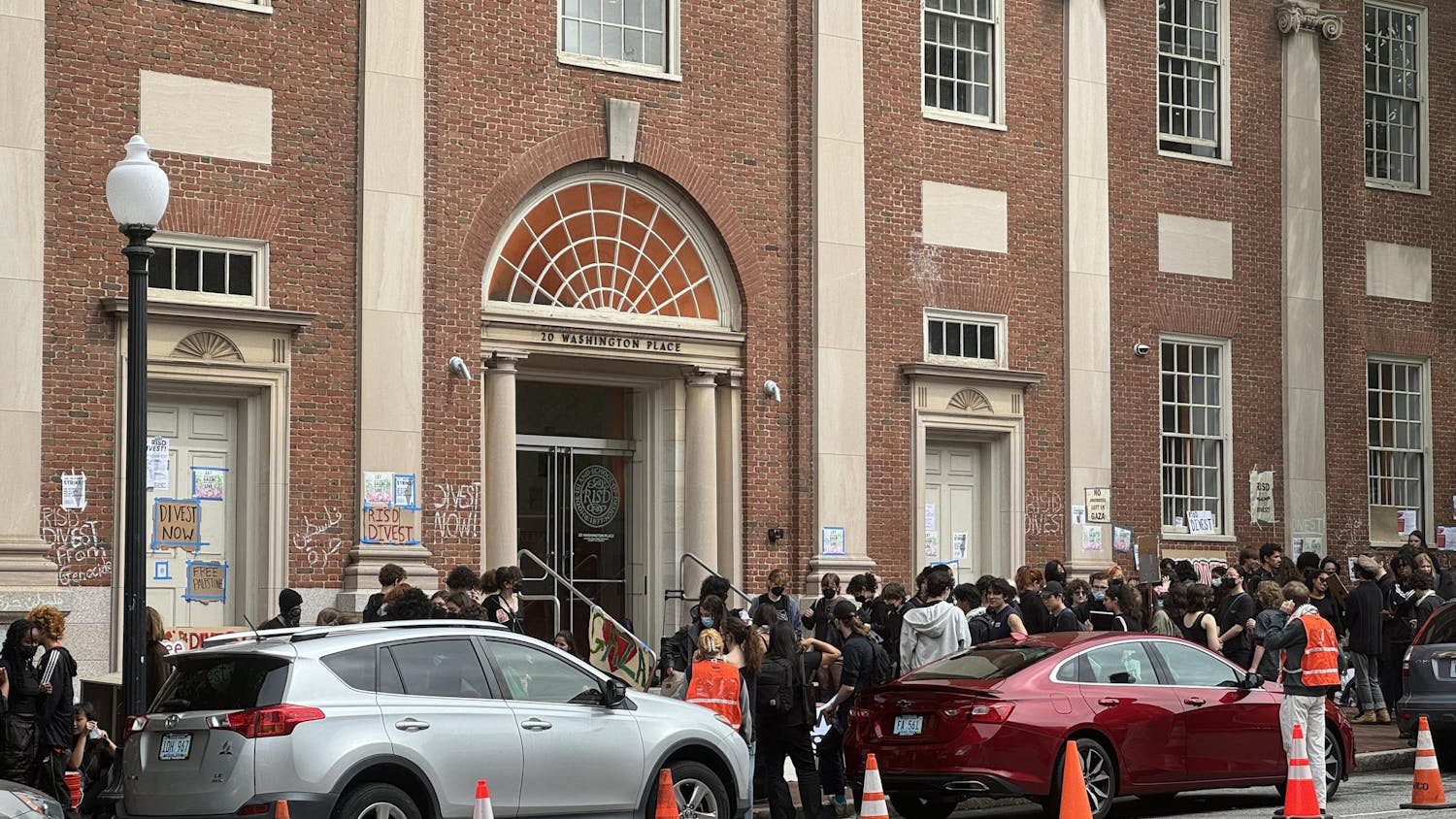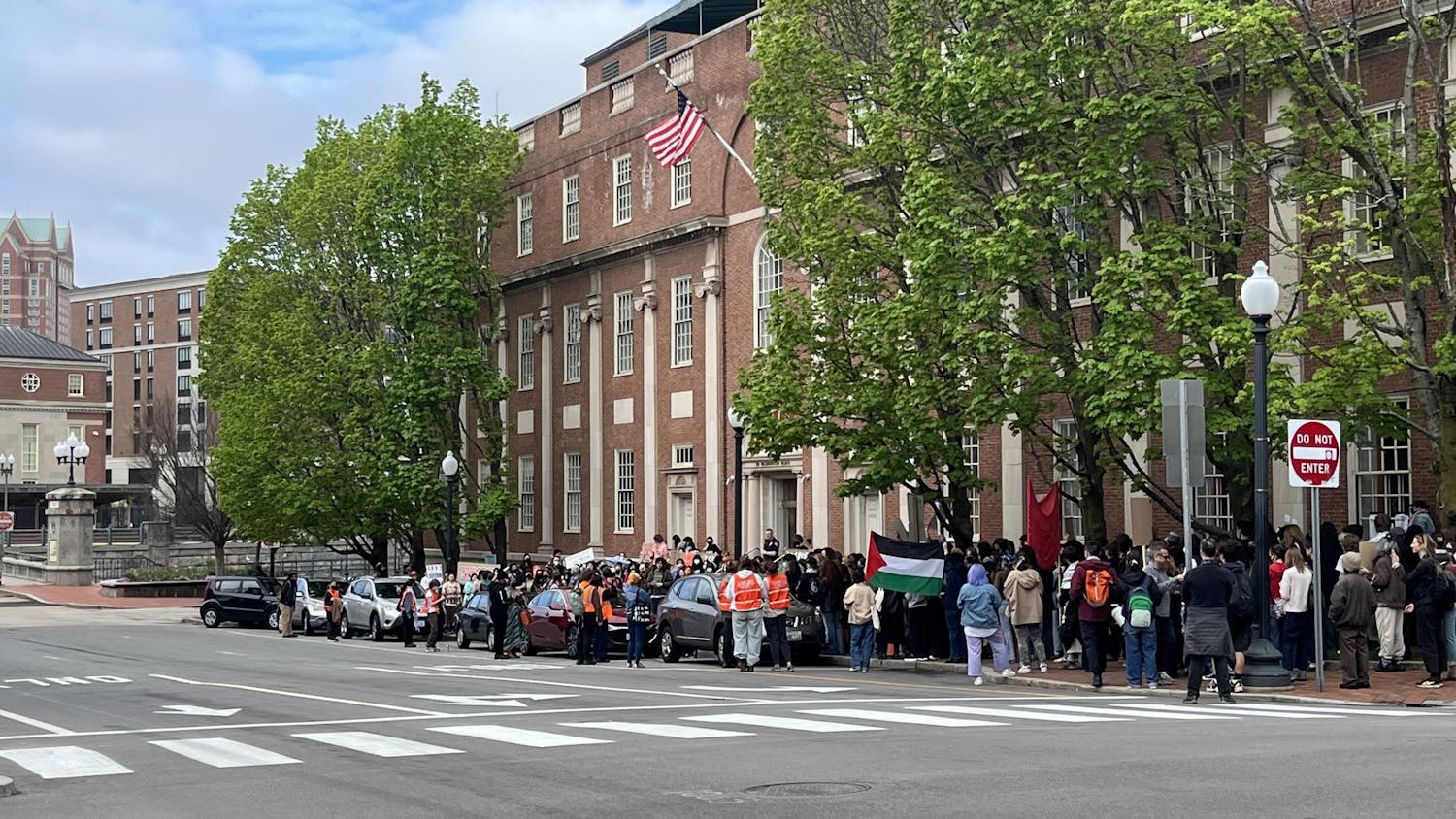Providence is developing a plan for monitoring and increasing literacy among young children, earning the city one of 20 finalist spots in the Bloomberg Philanthropies' Mayors Challenge, Mayor Angel Taveras announced in a Nov. 5 press conference.
The Mayors Challenge aims to "spread proven and promising ideas among cities," wrote James Anderson, director of the government innovation program at Bloomberg Philanthropies, in an email to The Herald. Just over 300 cities representing 45 states submitted applications in September, according to the Bloomberg Philanthropies website.
Teams from the selected cities, including Houston, Boston and San Francisco, shared ideas related to issues ranging from sustainability to employment at a Bloomberg "Ideas Camp" in New York City Nov. 12-13. During the camp, finalists gave 45-second pitches for their ideas, worked collaboratively with other cities, received advice from experts and refined their proposals, said Toby Shepherd, deputy director of policy for Taveras.
The challenge offers a total of $9 million in prizes, with a grand prize of $5 million, and four $1 million prizes for runner-up cities, according to the Bloomberg website. Following the Ideas Camp, Providence is now working with an individualized coach assigned through the challenge to prepare its idea for final submission in January, according to a Nov. 5 press release.
Providence's proposal calls for the use of an electronic device called the Language ENvironmental Analysis Pro,which attaches to a child's clothes and records up to 16 hours of continuous talk, including all words spoken to them, Shepherd said. When connected to a computer, the device can display the number of conversational turns that took place and the number of words that were heard per hour, she added.
The device was designed in response to work done by Betty Hart and Todd Risley in 1995. Their research demonstrated a "word gap," which translates to a literacy gap for children entering kindergarten, influencing their ability to succeed in elementary school and beyond.
According to the study, children in low-income families hear significantly fewer words per hour on average than children in higher-income families. "By age four," the study states, "a child from a welfare-recipient family could have heard 32 million words fewer than a classmate from a professional family."
The LENA Pro device has the potential to provide "really interesting, powerful" information to both the city and individual families, Shepherd said. It would help "coach parents" and "connect them with things in the community that already exist," such as literacy-building events at public libraries, he said.
"This information would provide the city with a level of data and analysis that we don't currently have," Shepherd said. "We would be able to map out 'word deserts,' or the spots in the city where children aren't hearing enough words." When assessed for various risk factors, the Providence families eligible for home visitation services would be given the option of using the device about once a month in order to receive feedback and comprehensive coaching, he added.
The proposal "dovetails with one of the mayor's signature initiatives and one that is very close to his heart," said David Ortiz, Taveras' press secretary.
Taveras aims to raise grade-level proficiency for students entering fourth grade to 70 percent by 2015, compared to 46 percent at the beginning of 2011, and the device has the potential to help Providence reach that goal, Ortiz said, citing statistics from a Nov. 14 press release.
The use of the data to boost literacy may also have a lasting impact on the academic success of Providence's youth, as "research shows that low-income children who are not reading proficiently by the end of third grade are up to 13 times more likely to drop out of school," Ortiz said.
Providence got involved in the challenge when Bloomberg Philanthropies reached out after the city received a $25,000 grant from the foundation in October for implementing a mentor-based reading program called Leyendo, Shepherd said.
Accordingly, Providence reached out to its public. Taveras posted a request for ideas on his Facebook and Twitter pages and spread the word through the community, Shepherd said. The ideas were then narrowed down in the mayor's office, and the LENA Pro was chosen because it was "the most innovative and most replicable by other cities," Shepherd said, which corresponded to the challenge's criteria.
On the judging end, "The ideas were rated based on vision, ability to implement, impact and replicability," Anderson wrote in an email. "Bloomberg Philanthropies is focused on spreading good ideas among cities. ... The Mayors Challenge provides a chance for mayors to put forward bold new ideas that improve their communities - and then spread nationally."
In the weeks following the Ideas Camp, Providence will continue to work with its coach to polish the final proposal. "We're spending this month and next month really ironing out and thinking hard about" several pieces of the idea, Shepherd said.
One valid concern that has come up is the issue of privacy, Shepherd added, but he clarified that "nobody is going to have access to the actual content, just the raw numbers." He compared the device to a pedometer, which counts steps but does not map the location.
The five winners will be announced in spring 2013, according to the Bloomberg website.
If Providence's proposal is selected, it will ideally be implemented by the beginning of the next academic year, Shepherd said. "We feel a lot of urgency around this issue," he added.




